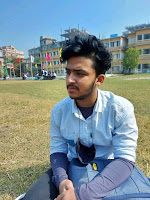Che Guevara Quotes, Bio, Political life etc.
Che Guevara Political life :
Summary
The Cuban Revolution
However, as Guevara's interest in Marxism grew, he decided to abandon medicine, believing that only revolution could bring justice to the people of South America. In 1953, he traveled to Guatemala, where he witnessed the CIA-backed overthrow of its leftist government, which only served to deepen his convictions.
By 1955, Guevara was married and living in Mexico, where he met Cuban revolutionary Fidel Castro and his brother Raúl, who were planning the overthrow of Fulgencio Batista's government. When their small armed forces landed in Cuba on December 2, 1956, Guevara was with them and among the few that survived the initial assault. Over the next few years, he would serve as a primary advisor to Castro and lead their growing guerrilla forces in attacks against the crumbling Batista regime. In January 1959, Castro assumed command over Cuba and set Guevara accountable for La Cabaña jail, where it is assessed that many individuals were executed on Guevara's extrajudicial orders. He was subsequently selected the leader of the public bank and priest of industry and did a lot to aid the country's change into a socialist state.
In the mid 1960s, Guevara likewise went about as a diplomat for Cuba, venturing to the far corners of the planet to lay out relations with different nations, generally prominently the Soviet Union, and was a vital participant during the Bay of Pigs attack and the Cuban Missile Crisis. He likewise created a manual on close quarters combat, and in 1964 conveyed a discourse to the United Nations in which he denounced U.S. international strategy and the politically-sanctioned racial segregation in South Africa.
Passing and Legacy
By 1965, with the Cuban economy wrecked, Guevara passed on his post to trade his progressive belief systems to different regions of the planet. He made a trip first to the Congo to prepare troops in hit and run combat on the side of an unrest there yet left soon thereafter when it fizzled. Subsequent to returning momentarily to Cuba, in 1966, Guevara left for Bolivia with a little power of radicals to impel an upheaval there. He was caught by the Bolivian armed force and killed in La Higuera on October 9, 1967.
Since his passing, Guevara has turned into an incredible political figure. His name is frequently compared with insubordination, upheaval and communism. Others, in any case, recollect that he could be merciless and requested detainees executed without preliminary in Cuba. Regardless, Guevara's life keeps on being a subject of extraordinary public interest and has been investigated and depicted in various books and movies, including The Motorcycle Diaries (2004), which featured Gael García Bernal as Guevara, and the two-section biopic Che (2008), in which Benicio Del Toro depicted the progressive.














No comments